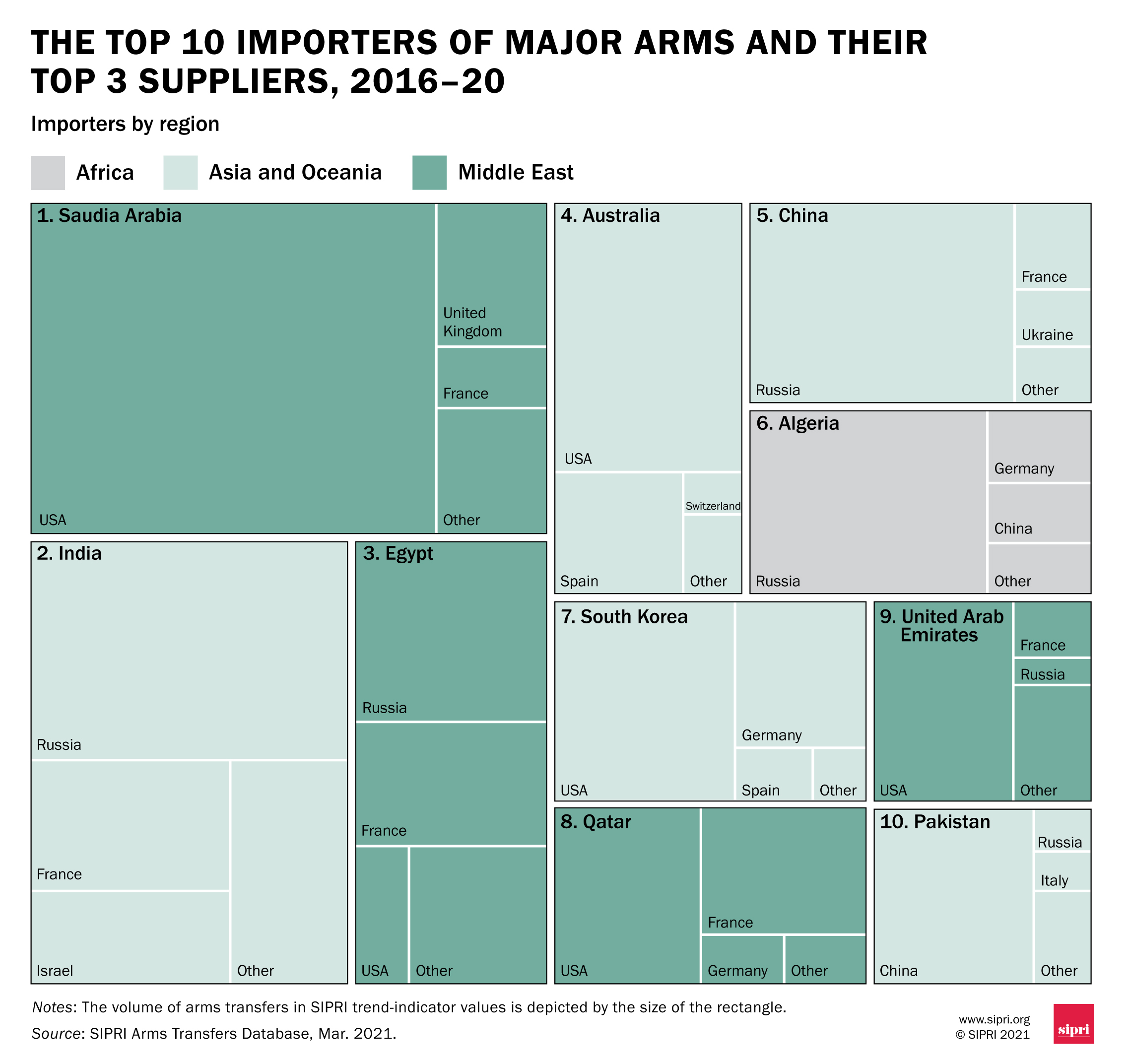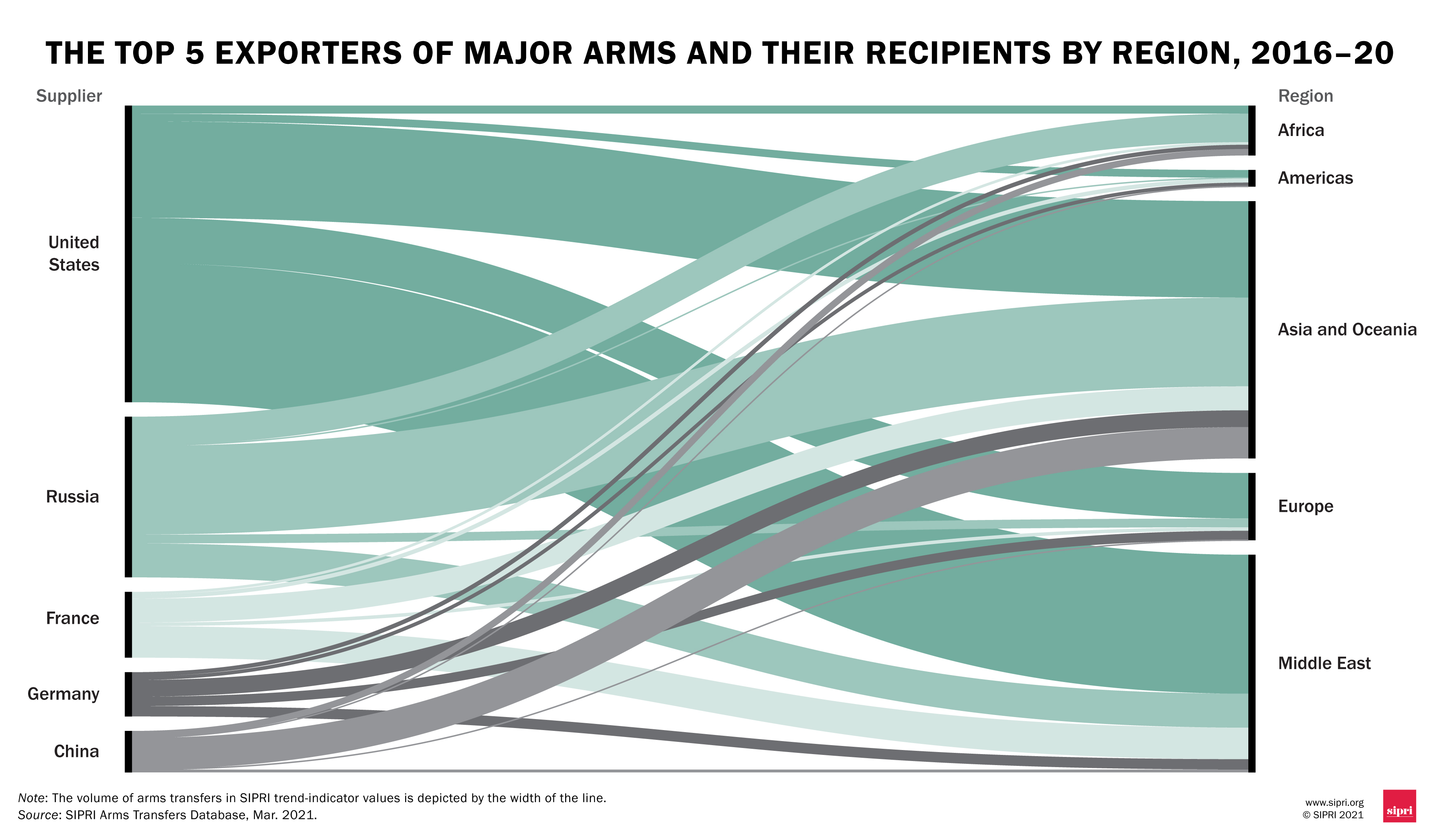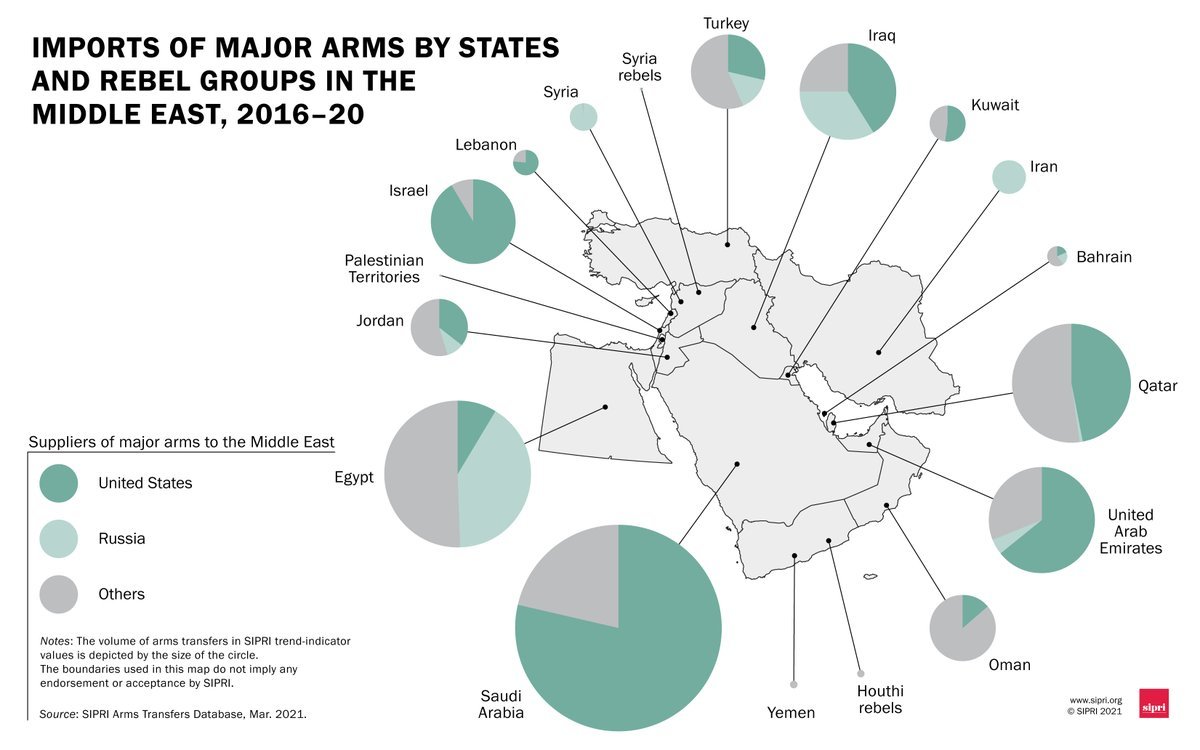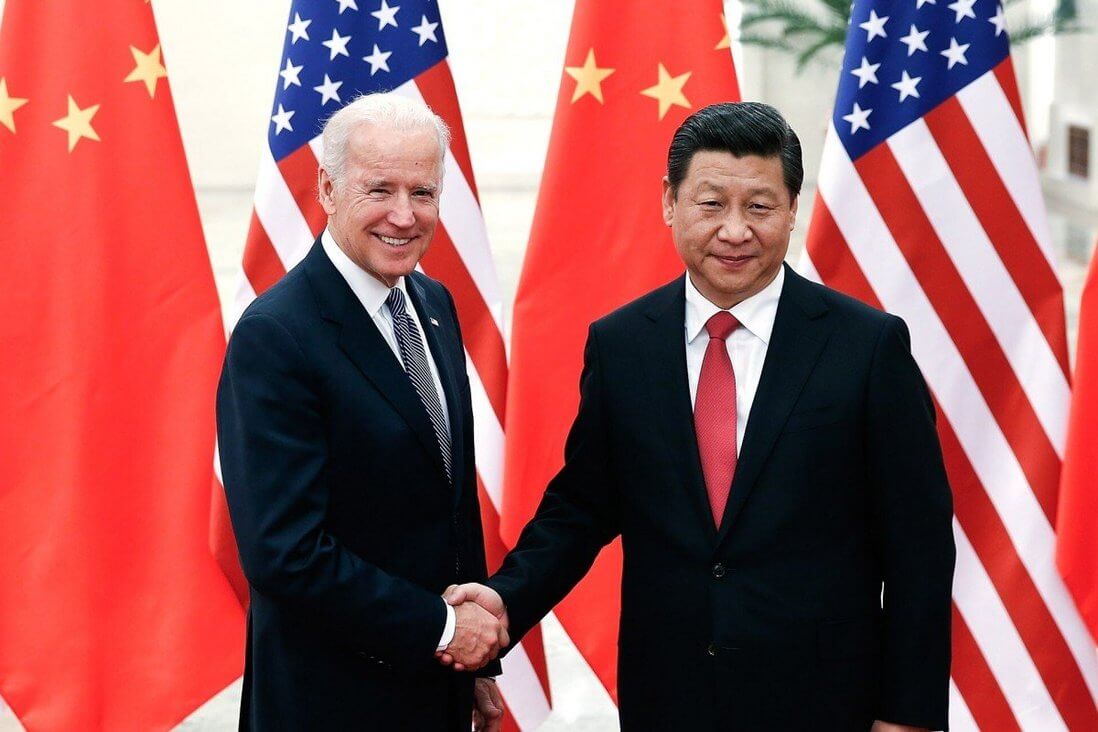It has been argued on numerous occasions that the geopolitical rivalry between the United States (US) and China could be the defining conflict of the 21st century. Beijing’s steady rise to the top as a major economic and military power have set off alarm bells in Washington, which views the Asian giant’s ascendency on the world stage as a serious challenge to its pre-eminence as a global superpower.
Their rivalry has thus far largely been restricted to the Indo-Pacific, where China has been making major territorial claims, especially in the South China Sea. However, this paradigm is changing, as Beijing has made serious inroads into other parts of the world, particularly in Africa. Now, it seems that the Middle East, which has traditionally been the US’ stronghold, is slowly becoming entangled in this unravelling geopolitical rivalry.
In December, a report by American intelligence agencies showed that Saudi Arabia has been manufacturing its own ballistic missiles with China’s help. According to officials, Riyadh had sought help from the People’s Liberation Army Rocket Force, the Chinese military’s missile force. A month earlier, the US pointed out that China was secretly constructing a military base in a port in the United Arab Emirates (UAE).
Moreover, China has been trying to tap into the Middle East’s defence markets and according to a SIPRI report on global arms transfers between 2016-20, China increased its weapons exports to the Middle East to 7%, compared to the 3.8% in 2011-15 period. Saudi Arabia, the UAE, Egypt, and Iraq are some of the biggest purchasers of Chinese arms from the Middle East. Riyadh even confirmed in 2014 that it had bought Chinese Dong Feng-21 ballistic missiles.
China has also established strong economic and trade ties with Iran and Turkey. Beijing signed a 25-year cooperation deal with Tehran in May and promised to invest $400 billion in the Iranian economy over the period of the deal. The deal enables Iran to be a part of the flagship Belt and Road Initiative.

In the case of Turkey, China has sought to significantly improve economic ties. The Turkish government, which had been very vocal in its criticism of China’s treatment of ethnic Uyghurs in Xinjiang, has largely remained silent over the issue recently. Local police have also arrested Turkish Uyghurs for protesting outside the Chinese embassy. Furthermore, Interior Minister Suleyman Soylu has urged the protesters to ensure that they do not become victims of a “planned international conflict that comes beyond the ocean.”Ankara’s silence has been attributed to its dependence on Beijing for COVID-19 vaccines. In fact, by January 2021, Turkey had received 6.5 million doses of the Sinovac vaccine.
The fact that US allies like Saudi Arabia, the UAE, and Turkey are willing to expand their engagement with China is indicative of the US’ gradual withdrawal from the region. Since coming to office in January last year, President Joe Biden has said that Washington should train its efforts on countering the “growing ambitions of China” to rival the US, possibly indicating that the US could focus more on its rivalry with China at the expense of ties with its Arab allies.
The US’ hasty withdrawal from Afghanistan, its restriction on arms sales to Saudi Arabia over human rights concerns, the exclusion of Turkey from the F-35 fighter jet programme, and an insistence on restoring the 2015 nuclear deal with Iran have raised concerns among its longtime partners in the Middle East. As a result, US allies have already begun taking matters into their own hands. For instance, several Arab countries, including the UAE, Saudi Arabia, Bahrain, and Egypt have sought to normalise ties with the Syrian regime, despite US opposition. This perceived indifference of the US to its allies’ concerns could be a major reason why these countries are also seeking greater ties with China.

That being said, however, the US is still the dominant power in the Middle East. Firstly, the military resources of the US in the Middle East are unrivalled. The US has between 45,000 and 60,000 troops currently stationed in Turkey, Syria, Iraq, Jordan, Saudi Arabia, the UAE, Kuwait, Bahrain, and Oman. Furthermore, the US Navy’s fifth fleet is based in Bahrain and maintains a considerable presence in the waters of the Persian Gulf and the Arabian Sea. China, on the other hand, has no major military presence in the region.
The US is also the top defence exporter to Middle Eastern countries. For instance, in 2021, SIPRI reported that US arms exports to the Middle East between 2016-20 accounted for almost half (47%) of its total arms transfers.
The US also acts as a counter to the expanding Iranian footprint in the region and Gulf countries heavily rely on American support to counter Tehran’s growing clout. Even though Arab countries may disagree with the US’ preference for a nuclear deal with Iran and its restrictions on arms sales to the Saudi-led coalition in Yemen, US military presence, especially in the Persian Gulf region, could limit the extent to which Iran can wage a proxy conflict against Gulf countries. For instance, the US assassination of Quds Force chief Qassem Soleimani was in response to increased Iranian attacks against Saudi Arabia.

Washington has also been involved in every major war in the Middle East since the second world war, either as a direct participant or as a negotiator. For instance, the US was directly involved in the first and second Gulf wars and supplied arms to Israel during all the Arab-Israeli conflicts till 1973.
Against this backdrop, it is not surprising that the UAE immediately put an end to the construction of a Chinese military base after the Biden administration warned Abu Dhabi that the presence of the Chinese military could threaten ties.
Therefore, given that the US clearly has the diplomatic, military, and economic edge in the Middle East, Beijing is unlikely to project power in the region at the expense of the US, nor will it pose any significant threat to Washington’s interests in the region. Furthermore, since the Biden administration has stated that containing Beijing’s rise is its most important foreign policy objective, the US will no doubt be aware of China’s expanding sphere of influence, particularly in the Middle East. To this end, while the US has stated its goal of pivoting east towards the Indo-Pacific, as China broadens its engagements in the Middle East, the US will no doubt follow by expanding its focus to include the region.

